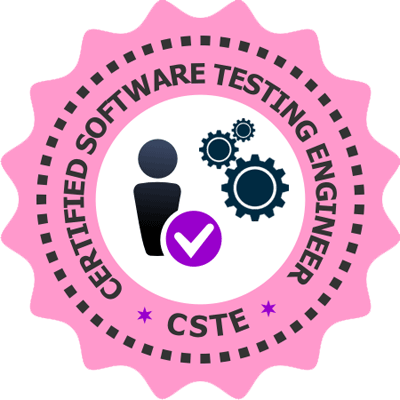Certified Software Testing Engineer (CSTE)
Exam Code: CSTE-001

The CSTE certification also enhances professional credibility and career growth by demonstrating a commitment to quality and best practices in software testing. Organizations value CSTE-certified professionals for their ability to establish effective testing processes, collaborate with cross-functional teams, and contribute to the delivery of dependable software solutions. As a result, the certification serves as a strong foundation for advancing into senior testing, quality management, or leadership roles within the software and IT industry.
The The Certified Software Testing Engineer (CSTE)® certification is well suited for software testers, quality assurance professionals, test analysts, and individuals involved in software quality management. It is also valuable for developers, business analysts, and project managers who want a structured understanding of testing and quality processes. By achieving the CSTE certification, professionals demonstrate their ability to apply best testing practices, improve software quality, and contribute effectively to organizational quality objectives across diverse software environments.
The Certified Software Testing Engineer (CSTE)® certification is a globally recognized credential that validates an individual’s knowledge and competence in software testing principles, practices, and methodologies. It covers the complete software testing lifecycle, including test planning, test design, test execution, defect management, and test reporting, while emphasizing quality assurance, process improvement, and industry standards. The certification ensures that professionals understand how testing integrates with the software development lifecycle to deliver reliable, high-quality software products.
E-Course Duration: 30 to 35 Hours




